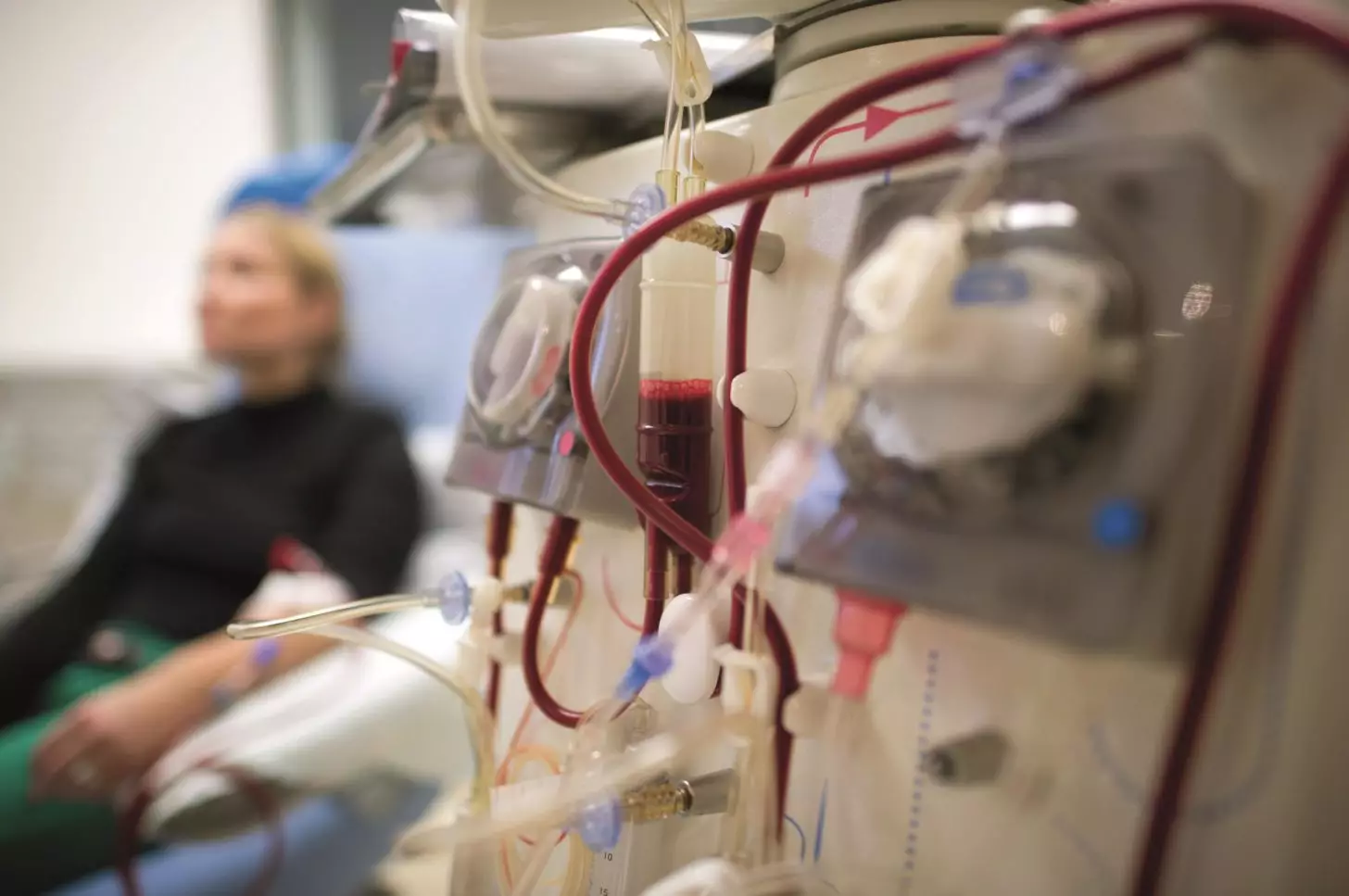
Medicare coverage changes for dialysis
Dialysis providers saw a change in the payment model for treating Medicare patients when CMS instituted the prospective payment system in 2011.
The pooling of payments to providers streamlined spending for a costly federal-funded entitlement that absorbed 7% of Medicare’s budget.
But this approach stopped at the door of the most complex aspect of care: the management of chronic kidney disease.
Chris Riopelle, CEO and co-founder of Strive Health, said increasing the use of home dialysis plays an important role in the success of value-based businesses. Source: Strive Health Inc.
In a 2021 report, the CDC estimated that more than one in seven people, or 15% of adults in the United States, have CKD in stages ranging from 1 to 5.
Many have diabetes, obesity, uncontrolled hypertension, and in some cases limited access to care.
Value-based companies are focusing on better treatment options for the 37 million patients with CKD, as both Medicare and commercial payers are struggling with the high cost of hospitalizations and are trying to correct randomized treatment approaches. past for kidney disease.
“Of the patients with whom we participated in our program, more than 50% with stages 4 to 5 of ERC have never seen a nephrologist.” said Chris Riopelle founder of Strive Health.
Leslie Wong, MD, The medical director of the Nephrology Care Alliance, a values-based care provider run by a doctor for DaVita, agreed that interest in CKD is changing.
“We’ve started moving that focus upstream,” Wong told Nephrology News & Issues. “Many nephrologists across the country have spent most of their time, most of their careers, dealing with dialysis-related problems. We are rarely called to a hospital to talk to someone about how to prevent their disease. renal worsening.
“It’s like the Titanic hitting the iceberg, and all we can do is start going down.”
In the last 3 years there have been several changes that have put the CKD in the spotlight, including the following. New pharmaceuticals that not only treat the underlying conditions of patients with CKD, such as cardiovascular disease and diabetes, but also help slow the progression of kidney disease. Advancing American Kidney Health, launched in 2019, was a government-funded initiative aimed at addressing kidney disease, including setting goals to guide more patients toward transplantation and home dialysis. which have better long-term results. The initiative resulted in the demonstration of ESRD’s treatment options model, which rewards clinics for directing more patients to home self-care and kidney transplantation, and the Kidney Care Choices (KCC) demonstration, launched on last January with a focus on slowing progression. of ERC in steps 4 to 5.
The KCC demonstration will run until December 2026 and includes two models: one for dialysis and nephrology providers, called Kidney Care First, and a second for nephrology practices and transplant organizations, called Comprehensive Care Recruitment. renal. Both are for Medicare primary care patients only and are subject to the clinical quality measures set out in the Quality Incentive Program, patient activation measures, as well as follow-up measures for hospital readmissions for depression and optimal start-ups. patients with ESKD.
Strive Health, along with other value-based companies such as CVS Kidney Care, Evergreen Nephrology, Somatus Inc., Panoramic Health, Cricket Health and Monogram Health, join kidney care organizations such as DaVita Inc., Fresenius Medical Care and US Renal. Care, participating in the KCC demonstration.
DaVita’s Integrated Renal Care Division will manage 11 kidney care entities (KCEs) under the model of comprehensive kidney care contracting; Fresenius Medical Care North America’s integrated care group will manage 20 KCE.
“There is an opportunity to make a positive difference in the lives of more patients by getting them with the right interventions and education before their kidneys fail,” he added. Misha Palecek, DaVita’s transformation director said in a press release. “We can help patients better plan their future kidney care needs, whether it’s a preventive transplant or an optimal start of dialysis at home, and improve their overall health while helping to reduce the cost of our healthcare system.” .
“Our innovative solutions have shown that we can really make a difference as we work to intervene earlier to treat kidney disease with new value-based models of care.” David Pollack, chairman of the FMCNA Integrated Care Group, said in a statement.

Comments are closed.